For the purpose of preserving healthy teeth and gums, dental hygiene is crucial. To keep your smile healthy and bright, follow these dental hygiene tips:
Brush your teeth at least twice a day for two minutes each time using fluoride-containing toothpaste.
Brushing before going to bed helps eliminate food particles and germs from the day. Brushing in the morning helps remove bacteria and plaque that accumulate overnight.
Daily flossing helps to get rid of food particles and plaque that a toothbrush can't reach in the spaces between your teeth and below the gum line. In those difficult-to-reach places, it aids in preventing cavities and gum disease.
Use mouthwash, After brushing and flossing, rinse with an antibacterial mouthwash. Mouthwash can help freshen your breath and lessen oral bacterial growth. Keep a healthy, balanced diet, Reduce your intake of sugary and acidic meals because they can cause tooth decay. For healthy teeth and gums, choose a diet high in fruits, vegetables, whole grains, lean proteins, and dairy products. Drink water to keep your mouth moist and to help wash away food particles. Water should be consumed immediately after consuming anything sweet or acidic. Avoid using tobacco products: Smoking and chewing tobacco can seriously damage your oral health, leading to gum disease, oral cancer, and tooth stains. Your oral health will improve dramatically if you stop smoking. Reduce your intake of sugary and acidic beverages: These drinks, including fruit juices, sports drinks, and soda, can erode your teeth's enamel and cause cavities. Use a straw to avoid getting these liquids on your teeth, and thereafter, rinse your mouth out with water. Go to the dentist frequently: For the purpose of avoiding dental difficulties and spotting problems early, routine dental exams and cleanings are crucial. Your dentist can see any possible issues and offer suggestions for enhancing your dental hygiene regimen.
Regularly replace your toothbrush: Every three to four months, or sooner if the bristles start to fray on your electric toothbrush, replace your toothbrush or toothbrush head. Your teeth will be less thoroughly cleaned using a toothbrush that is past its prime. When playing sports or engaging in other physical activities, you should wear a mouthguard to prevent damage to your teeth.By adhering to these dental hygiene recommendations, you can maintain excellent oral health and a gorgeous smile. Remember that maintaining healthy teeth and gums is worthwhile because a healthy mouth improves general wellbeing. Your tongue should be periodically cleaned with a tongue scraper or the back of your toothbrush. This aids in the removal of bacteria, waste, and dead cells that may cause bad breath and oral health problems. Chew sugar-free gum: Chewing sugar-free gum stimulates salivation, which helps wash away food particles and neutralize oral acids after meals. Since xylitol has been demonstrated to provide additional dental advantages, look for gum that contains it. Gently brush your tongue as part of your daily oral hygiene regimen to get rid of bacteria and lessen bad breath.
Think about dental sealants, which are coatings that are put to the chewing surfaces of molars to stop tooth decay.
Although they can be helpful for adults as well, they are particularly helpful for kids and teenagers.
Avoid grinding your teeth (bruxism): If you clench or grind your teeth, especially at night, you might think about using a nightguard to prevent excessive wear on your teeth and relieve stress on your jaw. Be careful while using teeth whitening products since, while they can help you whiten your teeth, improper or excessive use might harm the enamel of your teeth. Before utilizing any over-the-counter whitening products, speak with your dentist. Use a soft-bristled toothbrush and mild pressure when cleaning your teeth to prevent harming your gums and tooth enamel. Teach kids healthy dental habits: Encourage kids to start early developing appropriate oral hygiene practices. Help children properly floss and clean their teeth, and advise them to consume fewer sugary foods and beverages. Keep an eye on your dental health while expecting: Your oral health may be impacted by pregnancy-related hormonal changes. If you're expecting, let your dentist know, and practice proper oral hygiene throughout this time.
In case you encounter any dental concerns, such as toothaches, bleeding gums, or sensitivity, take immediate action. Make an appointment with your dentist right away to take care of the problem before it gets worse.
Maintaining good dental hygiene is essential for general health as well as for keeping a healthy smile.
Heart disease, diabetes, and other systemic diseases have all been related to poor dental health. So, take good care of your teeth and gums and go to the dentist regularly. To maintain excellent dental health, your dentist can offer specialized guidance and care.
Use little circular motions and a 45-degree angle to your gum line when brushing your teeth to ensure optimal technique. Pay close attention to the front, rear, and chewing surfaces of your teeth.
If you have trouble flossing or find it uncomfortable, think about using dental picks or interdental brushes to clean in between your teeth.
Limit your between-meal snacking because doing so exposes your teeth to prolonged acid attacks, which can raise your risk of tooth decay. If you want a snack, go for something wholesome like cheese, almonds, fruits, or veggies. Avoid using your teeth as implements: You should refrain from using your teeth for activities other than eating, such as opening bottles and packages. Such use of your teeth increases the risk of chipping or fracture. Eat and drink acidic things with caution: Tooth enamel can be eroded by citrus fruits, tomatoes, and other liquids like vinegar or lemon water. Consume them sparingly, then rinse your mouth out with water.If you want to avoid dental decay and improve your tooth enamel, think about using a fluoride mouthwash. If you're not sure if fluoride mouthwash is right for you, ask your dentist. Address dry mouth: If you experience dry mouth, it's important to do so because it can raise your chance of developing dental decay. Keep yourself hydrated and think about utilizing items made specifically to treat dry mouth. Maintain a routine free of stress for your dental hygiene, Stress can cause tooth grinding and other problems with your mouth. Use relaxation methods to reduce your stress levels, such as yoga, meditation, or deep breathing exercises.In order to replace missing teeth, you should think about getting a dental implant or bridge. Missing teeth can cause other teeth to shift, altering your bite and jeopardizing your oral health. Use a fluoride-containing toothpaste to prevent tooth decay because fluoride helps to strengthen tooth enamel. For further protection, make sure your toothpaste contains fluoride. Keep your toothbrush clean by rinsing it completely after each use and storing it upright so that it may dry naturally. Do not cover or keep toothbrushes in closed containers as this can encourage bacterial growth. Learn about dental hygiene and oral health procedures to keep your mouth healthy. A strong tool for maintaining good dental hygiene is knowledge.It takes a lifetime to maintain good oral health. You may keep your teeth and gums healthy for the rest of your life by constantly putting these suggestions into practice and making routine dentist appointments. Ask your dentist or dental hygienist for personalized guidance if you have any specific queries or concerns regarding your oral health.
Avoid drinking too much alcohol
Too much alcohol can cause dry mouth and raise your risk of tooth decay and gum disease. Moderate alcohol consumption should be followed by a large amount of water to maintain hydration.
Beware of practices that can discolor your teeth
Your teeth might become stained over time by certain activities, such as smoking or drinking dark-colored liquids like coffee, tea, and red wine. To enhance your dental and general health, reduce these behaviors and, if you smoke, think about giving it up.
While wearing braces or other dental equipment, practice proper oral hygiene: It's crucial to practice strict oral hygiene if you wear braces, retainers, or other dental appliances. Pay attention to your orthodontist's recommendations for cleaning your braces and teeth.
Consider using an oral irrigator: Oral irrigators can be a useful substitute for or addition to traditional flossing. To clean in between teeth and along the gum line, they use a spray of water.
Be cautious when using teeth-whitening procedures, If you choose professional teeth-whitening procedures, be sure to follow your dentist's advice and stay away from overusing whitening solutions, as they can lead to gum and tooth sensitivity.
Understand the symptoms of gum disease, Check your gums frequently for symptoms including redness, swelling, bleeding, or chronic bad breath. Consult your dentist right away if you experience any of these symptoms.
Drink enough of water throughout the day to stay hydrated.
This will also assist to flush out bacteria and food particles from your mouth, lowering your risk of cavities.
Inform and engage your family, Inform your family—especially kids—about the value of maintaining good oral hygiene. Make frequent brushing and flossing an enjoyable and engaging activity for kids to participate in.
If you grind your teeth, think about using a mouthguard: Your dentist may suggest a custom-fitted mouthguard if you clench or grind your teeth at night (bruxism) to prevent your teeth from suffering from excessive wear.
Select the appropriate toothpaste and toothbrush, There are several types of toothpaste and toothbrushes available. To determine which ones are ideal for your particular dental requirements, speak with your dentist. Brushing your teeth right away after eating sugary or acidic foods is not advised. You should wait at least 30 minutes after consuming these foods. As a result, your saliva can balance the acids and shield your teeth's enamel from any erosion. When receiving orthodontic treatment (braces, aligners, etc.), be patient and pay close attention to what your orthodontist instructs you to do. The work will pay off in the end.
Keep all of your dentist appointments, For maintaining good oral health, routine dental exams are crucial. Visits should be scheduled every six months or as your dentist advises.
A healthy smile starts with consistent dental hygiene routines.
For the best oral health, combine these suggestions with routine dental exams and professional cleanings. Don't be afraid to contact your dentist for advice and treatment if you have any oral health issues.
Be careful if you have sensitive teeth, If you have sensitive teeth to hot, cold, sweet, or acidic meals and beverages, see your dentist right away. Tooth sensitivity may indicate hidden dental problems that require care.
Be cautious about oral piercings because they can result in oral health issues like chipped teeth, infections, and gum damage. Oral piercings include tongue and lip piercings. If you have oral piercings, carefully weigh the dangers and practice good mouth hygiene. After vomiting, rinse your mouth with water. This is especially important if it was brought on by an illness or another factor. It's important to limit the damage stomach acid does to your teeth because it can destroy tooth enamel. Considering child dental sealants To prevent cavities, dental sealants, which are thin plastic coatings, are placed on the chewing surfaces of molars. They are particularly helpful for young people who are more susceptible to dental decay. Learn about the impact of drugs on dental health: Some drugs might have adverse effects including dry mouth, which can be detrimental to dental health. Discuss how to handle any potential oral health problems caused by your drugs with your dentist or other healthcare professional.
Avoid frequent munching and drinking sugary beverages
frequent snacking and drinking sugary beverages exposes your teeth to acid attacks all day long. To safeguard your dental health, try to eat balanced meals and avoid eating frequently.
Practice mouth exercises for TMJ health, Your dentist may suggest particular exercises to strengthen and relax your jaw muscles if you experience temporomandibular joint (TMJ) problems or jaw pain.
Keep your toothbrushes apart when storing them in a closed container because this can encourage the spread of bacteria. Each toothbrush should be kept upright and separated from the others.Use caution when using home cures for tooth whitening, When used improperly, natural teeth whitening solutions like baking soda or activated charcoal can be abrasive and harm enamel. Before attempting any home cures, speak with your dentist.If you are at a high risk of developing cavities, your dentist may advise professional fluoride treatments to strengthen your teeth and guard against tooth rot.Update your dental records regularly, Keep a log of all your dental exams, procedures, and X-rays. Future dental appointments and examinations will benefit from knowing this information.For sensitive gums, use a soft-bristled toothbrush, If you have sensitive gums, choose a soft-bristled toothbrush to lessen irritation.To ensure good healing and prevent complications, carefully follow your dentist's post-operative recommendations if you have any dental treatments done.Take good care of your dental appliances, If you wear dental appliances, such as nightguards or retainers, make sure you follow the cleaning and maintenance recommendations.
Be proactive in preventing gum recession by telling your dentist right away if you observe any gum discomfort or recession.
Early intervention can safeguard your teeth and roots and stop future recession.
It is crucial to be upfront with your dentist about any problems or changes in your oral health because individual dental needs can differ. You can keep your smile looking great and feeling great for years to come with a personalized approach to dental cleanliness and care.
Avoid over-whitening your teeth, While this might improve your smile, going overboard can cause tooth sensitivity and enamel damage. Pay attention to your dentist's advice and use whitening products sparingly.Wear a mouthguard to protect your teeth, lips, and tongue if you play sports or participate in other activities that could lead to dental injury.Be cautious with tongue piercings because they can result in broken teeth, damaged gums, and other oral health problems. Be cautious if you have a tongue piercing and practice good oral hygiene.Invest in an electronic toothbrush: For people with poor dexterity or to maintain good oral hygiene, electric toothbrushes can be more efficient.Brush your teeth before breakfast to lessen the damage that acid will do to your enamel if you eat or drink anything acidic for breakfast.Keep up a healthy lifestyle, A well-balanced diet, consistent exercise, and enough sleep are all important for general wellbeing, which includes oral health.Don't dismiss poor breath, Halitosis, or persistent foul breath, may indicate underlying dental issues or other health issues. Discuss it with your dentist to determine the issue's root and come up with a fix.Limit the use of chewing gums that claim to whiten teeth because they are not a replacement for expert teeth-whitening procedures. Use them in moderation and mostly for breath refreshing.
Early oral hygiene education is important.
As soon as your child's first tooth develops, begin teaching them the right ways to brush and floss their teeth. To help them form healthy habits early in life, encourage them to enjoy the process.
If you are more susceptible to tooth decay, you might think about using a fluoride-containing mouthwash to add an extra layer of protection to your teeth.
Keep your jaw from clenching or grinding, Tooth wear and other dental issues can result from bruxism, which is the habitual clenching or grinding of the teeth. To relieve tension if you do this during the day, try relaxation methods. If it just occurs at night, talk to your dentist about a nightguard.
You may maintain excellent oral health and a confident smile by implementing these additional dental care tips into your everyday routine. The early detection and effective treatment of any possible problems are ensured by regular dental appointments and open conversation with your dentist. Do not forget that maintaining good dental health is an investment in your overall health.
Fruits are typically healthful, however fruit juices can be heavy in sugar and acidic, which can result in tooth damage. It is better to eat fruits whole and to rinse your mouth with water afterward.
Use a mouthguard to treat sleep apnea, If you snore loudly or have sleep apnea, an oral appliance that is specially suited for you may help by moving your jaw to keep your airway open.
Be aware of oral health changes as you age, Your oral health may alter as you get older. Keep up with age-related dental issues and modify your oral hygiene program as necessary.Maintain a healthy gut, Eat a balanced diet that includes prebiotic and probiotic foods to support the growth of good bacteria in your gut. Gut health can affect oral health.Chew xylitol-containing sugar-free gum to help eliminate dangerous germs in the mouth. Xylitol is a natural sugar alternative. After meals, chewing xylitol-containing sugar-free gum can help keep your teeth healthy.
After dental work, pay attention to how sensitive your teeth are
Some dental operations, such as deep cleanings or fillings, may result in momentary tooth sensitivity. If you feel any pain following treatment, tell your dentist.
Identify and treat sleep-related breathing disorders, Oral health may be impacted by sleep-related breathing disorders, which can be indicated by snoring, gasping, or choking while sleeping. In the event that you experience these signs, speak with a sleep expert.
Get informed about oral cancer, Recognize the warning signs of oral cancer, which include mouth sores, red or white patches, and trouble swallowing. Oral cancer screenings are part of regular dental examinations.
Discuss dry mouth (xerostomia) with your dentist to determine the cause and come up with a management plan if you experience it. Your saliva is necessary for preventing tooth decay.Create a consistent oral care routine: Maintain the health of your teeth and gums by brushing, flossing, and rinsing every day.In order to prevent re-infection, replace your toothbrush once you feel better if you have been ill.Maintain your dental crowns and fillings, To ensure the longevity of dental restorations like fillings and crowns, abide by your dentist's guidelines for care.Be careful when wearing oral jewelry because mouth piercings can harm your teeth and gums. If you decide to wear oral jewelry, make sure it is positioned correctly and is clean.Keep your shoulders, neck, and jaw relaxed by maintaining proper posture. This can help to avoid or lessen TMJ problems.When receiving dental care, exercise patience because some procedures may take longer to provide effects. Respect your dentist's advice and give treatments enough time to be successful.
Regular dental check-ups and consistent, good dental hygiene procedures are essential for preventing dental problems and enhancing general health. You may have a gorgeous smile and superior oral health for the rest of your life by taking care of your teeth. Contact your dentist for individualized advice and direction if you have any particular worries or questions regarding your dental health.
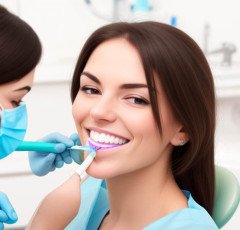










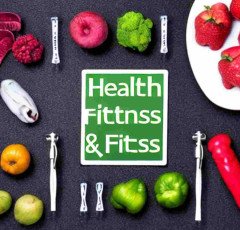







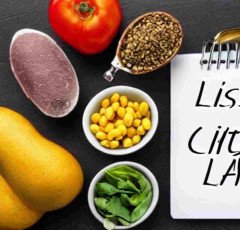
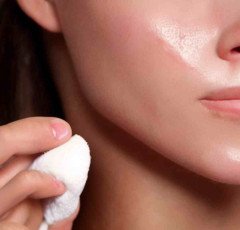









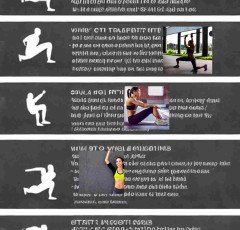













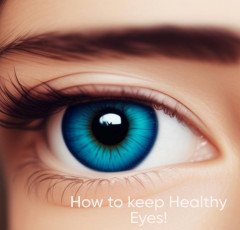























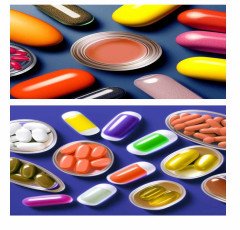




















 Artificial Intelligence
Artificial Intelligence  Best Robotic Vacuum Cleaners
Best Robotic Vacuum Cleaners  Unlimited access to classes on illustration, photography, design, film, music
Unlimited access to classes on illustration, photography, design, film, music  Sennheiser
Sennheiser  SEO Checklist
SEO Checklist  Graphics & Design
Graphics & Design  1150+Trendy kids coloring pages Bundle
1150+Trendy kids coloring pages Bundle  Favorite Company (Cuelinks)
Favorite Company (Cuelinks)  The Click Engine
The Click Engine  Top Rated From Amazon
Top Rated From Amazon  Smart Doorbell
Smart Doorbell  One World Collection
One World Collection  RPM 3.0
RPM 3.0  Acer Laptop
Acer Laptop  Hello Theme
Hello Theme  Best Selling Books
Best Selling Books  ASUS Laptop
ASUS Laptop  Best Sellers On Amazon
Best Sellers On Amazon  NordPass
NordPass  TitTok Revolution
TitTok Revolution  SOFAS
SOFAS  Women Fashion
Women Fashion  Unreal Engine 5 For Beginners Learn The Basics Of Virtual Production
Unreal Engine 5 For Beginners Learn The Basics Of Virtual Production  Amazon Best Selling Products
Amazon Best Selling Products  Only For The United States
Only For The United States  The Secret Email System
The Secret Email System  Online Marketing
Online Marketing  Hot Bags For Pain Relief
Hot Bags For Pain Relief  NordVPN
NordVPN  NordLocker
NordLocker  Men Clothing
Men Clothing  ASPINAL LONDON
ASPINAL LONDON  ELECTRONIC ACCESSORIES
ELECTRONIC ACCESSORIES  BEST SELLER TOP10
BEST SELLER TOP10  All Wireless Products
All Wireless Products  Best Home Appliances
Best Home Appliances  Creative Brief For Video Shoot
Creative Brief For Video Shoot  Online Technology Classes
Online Technology Classes 
















